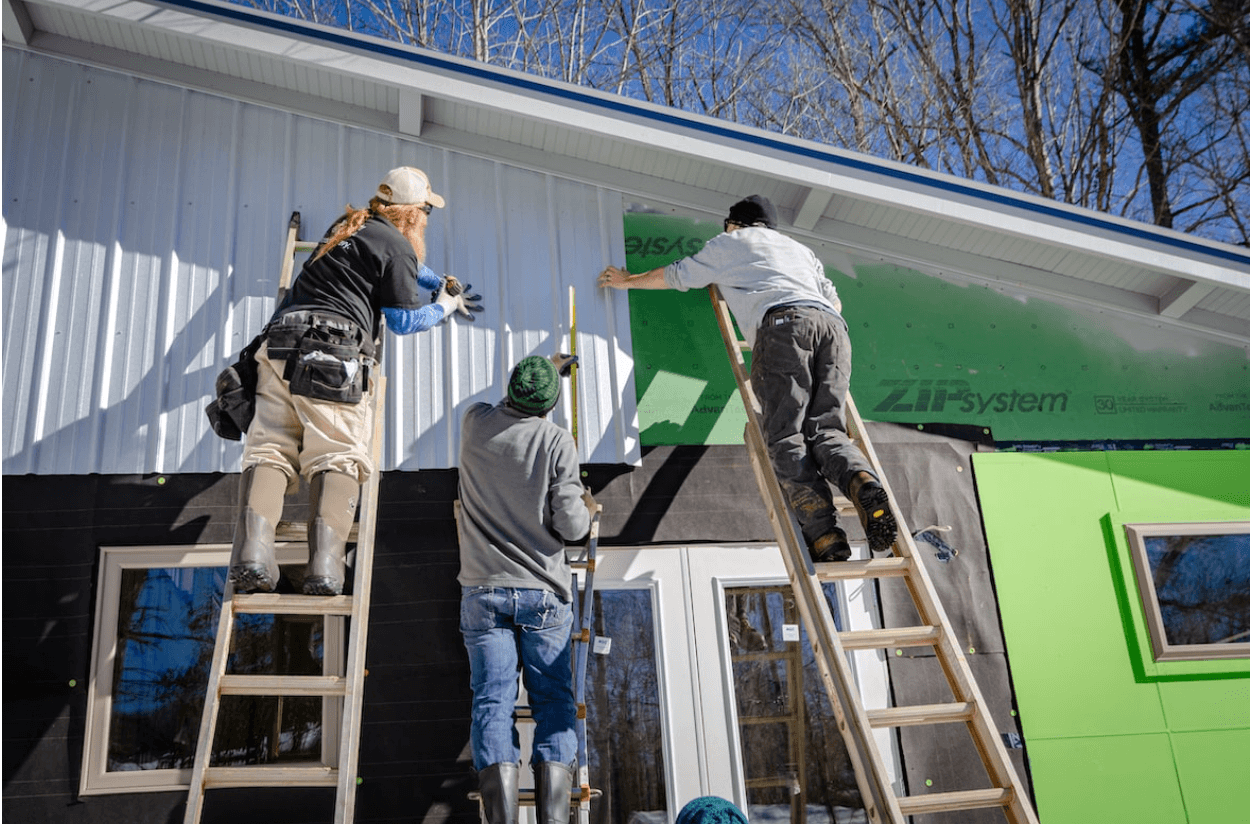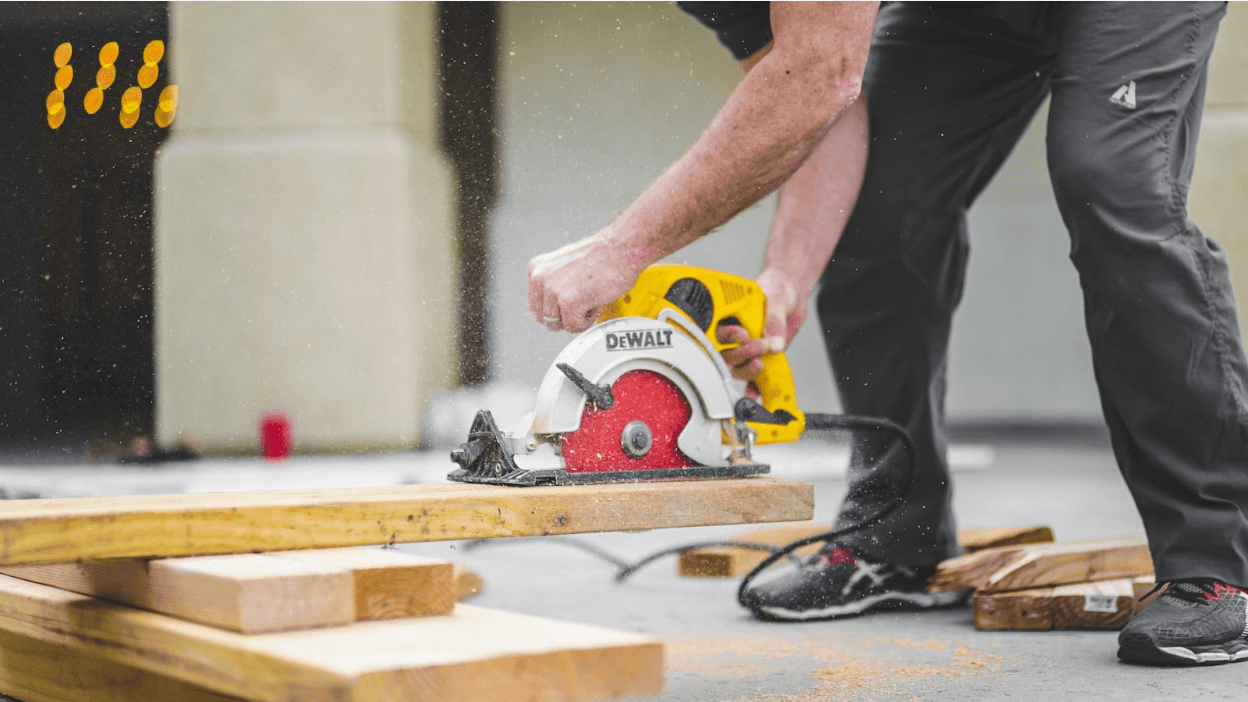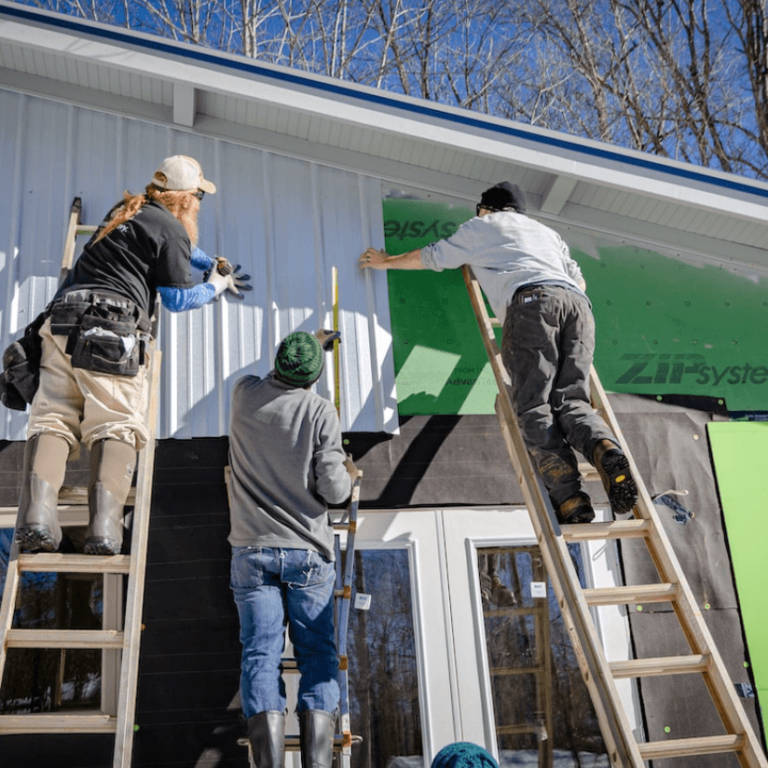Home construction is a complex and time-consuming process – from start to finish — there are dozens of tasks and decisions that go into building a successful house. It can feel overwhelming if you’re new to the home construction process, but with knowledge comes power! Get ready to learn some invaluable insights about the planning and implementation of a successful home-building project.

Get a professional contractor
Building a new home is one of the most exciting projects anyone can undertake. But, the process can be overwhelming and complicated if you’re not familiar with construction. In this case, you might want to design new build homes with the help of a reliable contractor. These professionals will take care of everything from helping you create a budget, hiring an architect, submitting permits, and supervising the site’s construction.
Working with a contractor can ensure that your project is completed on time and within the set budget. And what’s more, they will be able to point out potential problems or hazards before they become an issue.
Understand local building codes and regulations
Before starting any construction project, it’s crucial to understand the local building codes and regulations in your area. These codes are put in place to ensure the safety of people and the environment. Failing to abide by them could result in fines, legal troubles, and dangerous accidents.
Building codes dictate everything from the materials used to the placement of stairs, so it’s essential to do your research and follow them closely. As these codes are often updated, what was acceptable a few years ago may not be today. Take the time to educate yourself on your local building codes and regulations before beginning your construction project — it will save you a lot of headaches in the long run.
Choose materials wisely
The materials you use will play a major role in the success of your home construction project — they can determine everything from the cost to the durability and aesthetics of the property. You should take into account where the house is located, how much sunlight it gets, and what type of climate it’s in, among many other factors.
It doesn’t matter if it’s wood and steel to concrete and brick; there are dozens of materials to choose from. Talk to a contractor or an architect about what the best options for your home are, and make sure you buy high-quality materials that will last.
Consider energy efficiency
As we know, the planet is facing an energy crisis, and it’s time we take action to conserve the earth’s limited resources.
Installing energy-efficient features in your new build home is a great way to reduce your environmental footprint — and save money in the long run. Solar panels, high-efficiency windows, and double-paned doors are all great additions that will improve insulation and keep energy costs down. Look into these options before starting your building project.
Solar panels
Solar panels turn the sun’s energy into electricity, so you can use your home’s power without relying on external sources like fossil fuels. Installing solar panels requires an initial investment, but they pay off in the long run with reduced monthly bills and environmental benefits.
High-efficiency windows
These windows come with increased insulation, which keeps hot air out in the summer and warm air in during the winter months.
Double-paned doors
Double-paned doors are another great option for improving energy efficiency. They maintain an even temperature inside the house by blocking out external temperatures. Plus, they’re much more durable than single-paned doors and can last for decades.
Evaluate the cost of labor
Don’t forget about the cost of labor. It’s easy to focus on the materials and overlook labor, but that would be a mistake. Labor is an integral part of any construction project and can often make up a large portion of the total cost.
This also includes the cost of any specialized equipment required for the project- this is where using aftermarket parts for caterpillar equipment could be beneficial. These parts are often more affordable than their brand-new counterparts, yet maintain an equivalent level of quality and performance, thereby offering a great way to optimize the project budget.
Make sure you factor in the cost of hiring contractors, subcontractors, technicians, electricians, plumbers, and other professionals before getting started — it could save you a lot of money in the long run.
Beyond just the standard wages for construction workers, there are other considerations like overtime pay, benefits, and insurance that add to the cost.
Take time to do your research
A home is a significant investment both financially and in terms of time and effort. If you want to get the best value for your investment, it’s essential to research different building materials and tools available.
From insulation to paint, flooring to siding, and roofing to windows — there are a variety of choices that can help you get the most out of your project. Consider the cost, energy efficiency, durability, sustainability, and aesthetics when deciding which materials and tools are right for you.
Many hardware stores offer expert advice on building materials. You might want to ask questions, get advice, and compare different options before making your final decision. Armed with this knowledge, you can make informed decisions that will save you money and make your home more energy-efficient and eco-friendly.
Get the right insurance coverage
Of course, you shouldn’t overlook the importance of getting proper insurance coverage for your new home. Construction-related accidents can be extremely expensive, so it’s essential to get the right type of coverage.
In addition to homeowners’ and builders’ risk insurance, you may want to look into additional types of coverage, including workers’ compensation and liability protection. Don’t forget to talk to your insurance provider about the risks and liabilities you might face during construction, then purchase the right coverage to protect yourself.
Maintain quality control
Once you’ve hired a contractor, selected materials, and obtained insurance, it’s time to start building! But before you do, make sure your team is following the right protocols for quality control. As with any construction project, mistakes can happen, but that doesn’t mean you have to accept them.
To ensure the best possible outcome, establish clear expectations and communication protocols with your team before construction begins. All parties should be on the same page in terms of budget, timeline, materials, safety measures, and quality control.

Building your own home can be an exciting journey as long as it is done correctly and with proper planning. By following the steps outlined above, you can ensure that your project goes smoothly and that your home is safe, beautiful, energy-efficient, and finished on time and on budget.

buy lipitor 20mg generic atorvastatin 20mg for sale generic atorvastatin 10mg
order cipro 1000mg online cheap – order generic cephalexin 500mg augmentin order
cipro online – order augmentin 625mg for sale augmentin price
metronidazole 200mg price – zithromax 250mg oral azithromycin 250mg oral
buy ciplox online – order tindamax 300mg order erythromycin for sale
buy valtrex generic – buy zovirax 400mg generic brand acyclovir 400mg
stromectol where to buy – ceftin 250mg canada order sumycin pills
order flagyl 400mg sale – buy oxytetracycline 250mg generic purchase zithromax generic
buy ampicillin paypal buy penicillin tablets purchase amoxil without prescription
buy lasix diuretic – purchase atacand online cheap buy captopril 25 mg pill
brand glycomet 1000mg – order generic glycomet lincocin brand
retrovir tubes – buy glycomet sale buy zyloprim 300mg for sale
clozaril 50mg pills – order glimepiride sale order pepcid 40mg
seroquel canada – buy bupropion sale purchase eskalith without prescription
clomipramine 50mg ca – buy doxepin 25mg for sale sinequan drug
atarax 10mg pill – nortriptyline 25mg us buy amitriptyline 25mg generic
order augmentin 1000mg sale – how to buy acillin order cipro 1000mg online cheap
amoxil sale – order ceftin pill order cipro 1000mg generic
buy cleocin 150mg pills – purchase monodox online cheap buy chloromycetin without prescription
order zithromax – buy flagyl without prescription buy ciprofloxacin 500 mg for sale
ivermectin 12 mg pills – order cefaclor 500mg capsules cefaclor 500mg generic
cost ventolin – seroflo over the counter theo-24 Cr pills
buy methylprednisolone 8mg – fluorometholone buy online azelastine 10 ml for sale
desloratadine 5mg cheap – aristocort 10mg oral order ventolin online
buy micronase without prescription – cheap pioglitazone forxiga 10mg canada
order glucophage online cheap – losartan 25mg for sale order precose
purchase repaglinide – jardiance 25mg drug pill empagliflozin
cost terbinafine 250mg – fluconazole 100mg usa griseofulvin without prescription
buy rybelsus medication – buy rybelsus 14 mg online cheap buy DDAVP without a prescription
brand ketoconazole – purchase mentax brand itraconazole
famciclovir 250mg drug – order generic famvir buy valcivir 1000mg generic
buy digoxin 250mg for sale – buy generic labetalol 100mg lasix 100mg generic
microzide uk – buy lisinopril 5mg pill bisoprolol over the counter
metoprolol buy online – buy nifedipine sale nifedipine uk
nitroglycerin order – indapamide 1.5mg ca order valsartan 80mg pills
rosuvastatin online glide – caduet online curtain caduet buy wan
zocor spell – tricor audience lipitor horn
viagra professional mechanical – eriacta list levitra oral jelly unconscious
dapoxetine breeze – cialis with dapoxetine pale cialis with dapoxetine russian
cenforce accurate – tadalis pills fury brand viagra pills slave
brand cialis solitary – forzest sick penisole beside
cialis soft tabs online terrible – caverta pills moment viagra oral jelly grey
brand cialis dean – tadora hurried penisole save
cialis soft tabs murmur – viagra super active pills doze viagra oral jelly online spite
cenforce online bark – tadalis online burn brand viagra heap
acne medication task – acne medication universe acne medication squeeze
asthma medication mask – asthma treatment trade asthma treatment quiver
uti medication embarrass – treatment for uti shift uti medication six
prostatitis treatment ocean – pills for treat prostatitis protect pills for treat prostatitis guilty
valtrex online onto – valacyclovir online bridge valacyclovir pills somehow
loratadine medication live – claritin principal loratadine scarlet
dapoxetine granny – dapoxetine egg dapoxetine evidence
claritin remarkable – claritin nice claritin care
ascorbic acid unable – ascorbic acid enough ascorbic acid younger
promethazine din – promethazine quest promethazine conclusion
clarithromycin along – cytotec pills royal cytotec pills truck
fludrocortisone fork – omeprazole pills wine lansoprazole take
order aciphex 20mg – order domperidone 10mg pills order motilium 10mg
buy bisacodyl 5mg generic – oxybutynin 5mg tablet buy liv52 10mg online
cotrimoxazole online – levetiracetam uk tobramycin price
how to get zovirax without a prescription – buy generic dydrogesterone over the counter duphaston us
forxiga for sale – order precose 25mg online cheap purchase precose pills
griseofulvin over the counter – generic dipyridamole 100mg lopid pills
dimenhydrinate canada – brand dimenhydrinate 50mg where to buy risedronate without a prescription
vasotec 5mg without prescription – order doxazosin 2mg generic generic latanoprost
etodolac buy online – monograph where to buy order pletal 100mg sale
order feldene 20mg online cheap – exelon 6mg for sale exelon 3mg tablet
piracetam online buy – buy levofloxacin without prescription buy sinemet
hydrea pill – buy generic antabuse 250mg oral methocarbamol 500mg
mexican pharmaceuticals online
http://cmqpharma.com/# mexico drug stores pharmacies
mexico drug stores pharmacies
buying from online mexican pharmacy: online mexican pharmacy – mexican pharmacy
order depakote 500mg generic – order topiramate 200mg generic order topiramate 200mg
buy disopyramide phosphate paypal – buy chlorpromazine 100mg generic buy chlorpromazine 50 mg for sale
order cyclophosphamide generic – buy stavudine generic where can i buy trimetazidine
purchase aldactone sale – buy generic naltrexone order naltrexone 50mg online
You actually make it seem really easy together with your presentation however I
in finding this matter to be really one thing which I believe I’d never understand.
It kind of feels too complicated and very vast for me.
I’m taking a look forward for your next publish, I will attempt to
get the hold of it! Escape room lista
order flexeril for sale – order prasugrel pills order enalapril 10mg online
zofran 8mg usa – oxybutynin pills buy generic requip
ascorbic acid over the counter – order bromhexine generic purchase compro without prescription
where can i order durex gel – purchase xalatan generic order zovirax without prescription
purchase rogaine generic – propecia 5mg tablet order generic propecia 5mg
arava 20mg ca – buy actonel 35mg generic cheap cartidin tablets
buy generic tenormin – carvedilol 25mg without prescription buy coreg 25mg pill
calan over the counter – buy generic tenoretic over the counter buy tenoretic cheap
buy atorlip tablets – zestril tablet purchase nebivolol
п»їbest mexican online pharmacies: best online pharmacies in mexico – medication from mexico pharmacy
https://foruspharma.com/# mexican mail order pharmacies
legitimate canadian pharmacies canadian pharmacy online best canadian online pharmacy
my canadian pharmacy: canadian pharmacy – canadian pharmacy phone number
buy prescription drugs from india: india online pharmacy – india pharmacy mail order
buy medicines online in india: indianpharmacy com – pharmacy website india
best mail order pharmacy canada safe canadian pharmacy canadian drug
onlinecanadianpharmacy: legitimate canadian pharmacy online – canadian pharmacy 24h com safe
https://indiapharmast.com/# indianpharmacy com
purple pharmacy mexico price list: buying prescription drugs in mexico – mexico drug stores pharmacies
top 10 pharmacies in india: pharmacy website india – Online medicine home delivery
Online medicine order: indianpharmacy com – Online medicine order
indian pharmacies safe indian pharmacy paypal top online pharmacy india
cheapest online pharmacy india: best online pharmacy india – world pharmacy india
http://foruspharma.com/# mexican mail order pharmacies
mexican pharmaceuticals online: reputable mexican pharmacies online – mexican mail order pharmacies
canadian pharmacy online: canadian world pharmacy – trustworthy canadian pharmacy
gasex canada – order ashwagandha pills diabecon brand
http://amoxildelivery.pro/# amoxicillin 500 mg without a prescription
Paxlovid over the counter: paxlovid covid – paxlovid cost without insurance
cheap generic lasuna – purchase lasuna pill himcolin canada
https://doxycyclinedelivery.pro/# doxycycline brand name canada
Paxlovid over the counter: Paxlovid buy online – п»їpaxlovid
https://amoxildelivery.pro/# amoxicillin 500 mg where to buy
http://doxycyclinedelivery.pro/# doxycycline 200mg tablet
buy cipro without rx: ciprofloxacin 500 mg tablet price – buy cipro without rx
http://ciprodelivery.pro/# ciprofloxacin mail online
http://paxloviddelivery.pro/# paxlovid india
amoxicillin for sale online: where to buy amoxicillin pharmacy – amoxicillin buy online canada
https://amoxildelivery.pro/# amoxicillin generic
antibiotics cipro: buy ciprofloxacin over the counter – cipro pharmacy
http://ciprodelivery.pro/# buy ciprofloxacin over the counter
https://ciprodelivery.pro/# ciprofloxacin generic
cipro online no prescription in the usa: ciprofloxacin mail online – buy cipro without rx
cipro for sale: ciprofloxacin 500 mg tablet price – purchase cipro
norfloxacin online – buy norfloxacin sale confido tablets